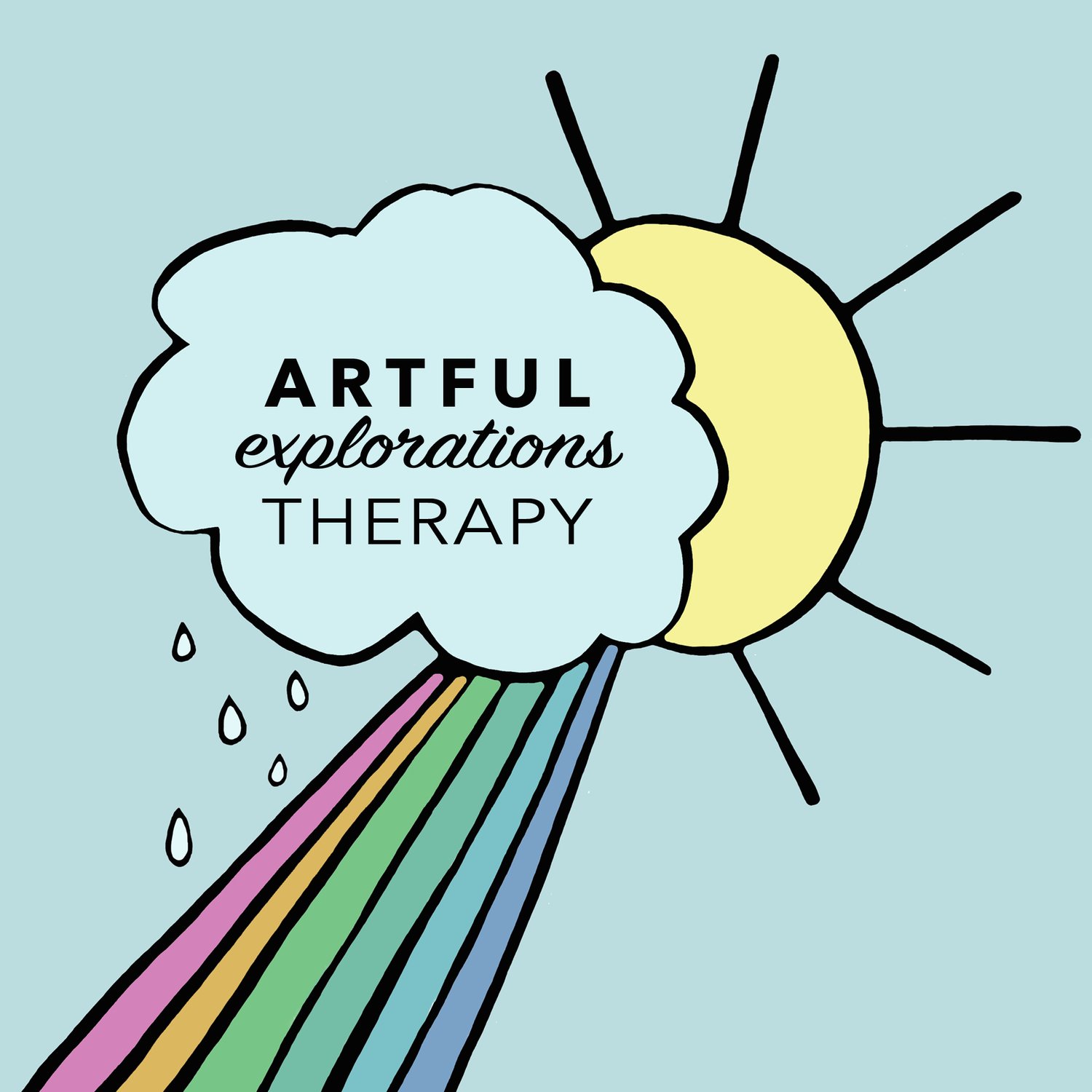Expanding Professional Offerings: ERP Therapy for OCD and Anxiety Disorders
Laura Hetzel of Artful Explorations Therapy now offers Exposure and Response Prevention (ERP) therapy for the treatment of OCD and anxiety disorders. ERP is an evidence-based therapeutic treatment that works to manage the symptoms of OCD by helping individuals and their families to disengage from the cycle of obsessions and compulsions and reclaim their lives.
Hello, Laura Hetzel here, and I’m excited to share an update regarding the services I offer. I am now trained in Exposure and Response Prevention (ERP) therapy for the treatment of OCD and anxiety disorders. ERP is an evidence-based therapeutic treatment that works to manage the symptoms of OCD by helping individuals and their families to disengage from the cycle of obsessions and compulsions and reclaim their lives. Read on to learn more about ERP therapy and how to recognize common OCD symptoms in yourself or your child.
What is ERP Therapy?
ERP (sometimes called ExRP) is a highly effective, evidence-based treatment specifically designed to help individuals manage symptoms of Obsessive-Compulsive Disorder (OCD) and anxiety disorders. It is considered the gold standard treatment for OCD, focusing on breaking the cycle of obsessions (intrusive, unwanted thoughts) and compulsions (ritualistic behaviors).
The core principle behind ERP is gradually confronting fears without engaging in compulsions. Over time, this reduces the power of the obsessive thoughts and reduces the need for compulsive rituals.
Whether for a child struggling to manage fears or an adult trying to regain control of their life, ERP can provide significant relief. By using this structured, gradual exposure technique, individuals can rewire their brains to respond more appropriately to triggers.
Some Common Signs of OCD
Intrusive Thoughts: These are unwanted, distressing thoughts that are hard to shake, like fears of harming someone, fear of being a bad person, or of things being “wrong." These thoughts are repetitive and come back again and again despite efforts to stop them. Some common themes of intrusive thoughts can include excessive fear of dirt or germs or of being responsible for harming someone.
Compulsive Behaviors or “rituals”: These are repetitive actions you feel you must do, like washing your hands multiple times or checking the locks over and over, in order to ease anxiety. Other examples might be: ensuring things are “just right,” counting in certain patterns, reviewing mental lists, ruminating, or checking for mistakes over and over again. These behaviors are usually time consuming. For instance, you might spend hours a day arranging items, reviewing social interactions in your head, or asking reassuring questions over and over again, even though you’ve already checked multiple times.
Despite recognizing that these thoughts and behaviors might be irrational or excessive, someone with OCD usually feels powerless to stop them. OCD can be scary, confusing, and frustrating.
For Parents: Potential Signs of Pediatric OCD in Your Child
Parents may notice signs of OCD in their children if they become unusually fixated on certain thoughts or fears, such as a fear of germs, fear of harm coming to themselves or loved ones, or needing things to be "just right.” Children might show distress when things are not in a specific order or may engage in repetitive behaviors like washing hands repeatedly, checking if a door is locked, or avoiding certain situations, people, or places. OCD can also show up as resistance to change, an intense need for routine, unexpected big reactions and irritability, or seeking constant reassurance from parents (such as through frequently repeated questions). Families often find themselves living their lives differently than they would like to in order to try and ease their child’s distress. If your child’s behaviors are taking up a lot of time, appear excessive, or are causing significant distress, it’s a good idea to reach out to a professional for guidance and support. Together, we can assess for the presence of OCD and its severity and develop a plan for your child’s treatment.
OCD looks a little different in everyone, but, with the right treatment, it is manageable. Contact Artful Explorations Therapy today if you think ERP treatment might benefit you or your child.
My Areas of Specialty, by Laura Hetzel, MPS, ATR-BC, LAPC
Laura Hetzel is an Art Therapist at Artful Explorations Therapy in Philadelphia, PA. Her areas of specialty include Child and Adolescent Therapy, Trauma and Complex PTSD, Family Therapy, Perfectionism and Anxiety, Queer and Trans Clients, Sensory Impairments, Developmental Disabilities, and Autism.
Hi, I’m Laura, an art therapist here at Artful Explorations. I have been in the field since 2017, and have focused much of my work on supporting young people and their families. You can read a little about me in my bio, as well as below where I speak to some of my specialties.
Child And Adolescent Therapy
My foundations in art therapy began working with children and teens. I have experience supporting kids with diagnoses like ADHD, Autism, Anxiety, Social Anxiety, Depression, PTSD, BPD, ODD, and through general life ups and downs. Caregiver involvement can be instrumental in getting a picture of the whole child, and creating lasting change by identifying opportunities for new skills to be practiced both in the therapy space and at home. I enjoy supporting children to build their internal resources as well as their skills at self advocacy, so they are able to reach out for support from adults when needed.
Trauma and Complex PTSD
In trauma-focused treatment, I support children, teens, and young adults to reduce symptoms, increase their quality of life, build self-confidence, and experience hope. Trauma can be debilitating. Sometimes this is due to one isolated traumatic event, and sometimes it is due to more chronic experiences such as instability, abuse, neglect, or an invalidating environment. This can include experiences of oppression such as racism or ableism. Clients who have endured repeated trauma often feel anxious, disconnected, despairing, and self-critical. In children, trauma often manifests in challenging behavior, big emotions, social problems, and trouble focusing. I pull on multiple modalities to best support clients through the complexities of trauma treatment. I work psychodynamically, meaning I support clients to make connections between their past and present experiences in order to identify and resolve barriers that keep them stuck. The use of cognitive techniques in conjunction supports relaxation, coping, and confidence. I have experience helping children as young as 4 through adults in trauma focused treatment.
Family Therapy
For the last 6+ years, I have supported families to strengthen their connections to each other, reduce tension, and enhance the quality of their relationships. Dealing with challenging behaviors, adjusting to change, separations, and simply feeling overwhelmed are common reasons families seek my support. I enjoy collaborating with caregivers to troubleshoot problems, then to identify and implement solutions that make sense for their unique family. Art therapy provides a special space for families to practice their communication skills and being with each other as they navigate creating something new together.
Perfectionism and Anxiety
I help teens and young adults break free of feeling like they just cannot get anything right. I support clients to get out of their heads and unstuck from patterns of rumination, worry, and shame. I support clients to move out of self-limiting beliefs and negative thought patterns to allow for more flexibility, creativity, and joy to enter their lives.
Obsessive-Compulsive Disorder (OCD)
I’m trained in Exposure and Response Prevention (ERP) therapy for the treatment of OCD and anxiety disorders. ERP is an evidence-based therapeutic treatment that works to manage the symptoms of OCD by helping individuals and their families to disengage from the cycle of obsessions and compulsions and reclaim their lives.
Queer and Trans Clients
As a queer person, I enjoy supporting queer and trans clients and families. I have experience supporting clients through coming out, gender transitions, parenting trans and queer children, self-acceptance, and identity exploration.
Sensory Impairments, Developmental Disabilities, Autism
I have supported youth with multiple sensory impairments, developmental disabilities, and physical disabilities, as well as autistic clients in group, individual, and family settings for many years. I have worked with youth with a wide range of communication styles and nonspeaking clients. I am skilled at adapting art making to suit different needs. Art therapy can serve as a space for identity exploration, self-expression, and emotional processing beyond spoken language. Clients often work with me to build confidence and process internalized ableism and low self esteem as a result of judgement from others and barriers within society. In addition, I have limited working proficiency in American Sign Language, which can be useful for individuals who utilize some signing.




